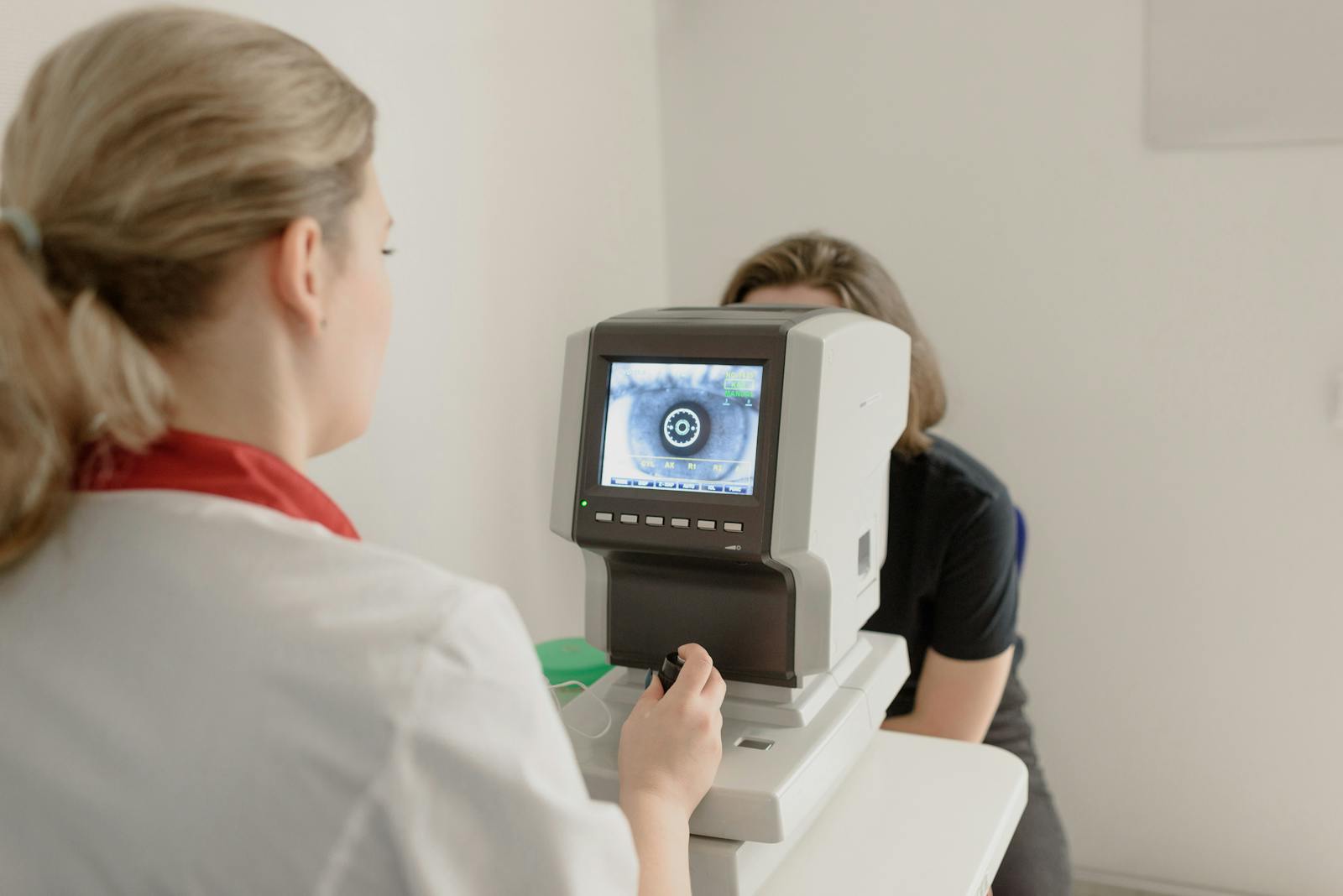Our eyes are the window to the world, and we rely on them to see and experience the beauty around us. However, with age and exposure to digital screens, our eyes can experience a decline in their overall health, leading to vision loss and eye diseases such as cataracts and glaucoma. Therefore, it is essential to take proactive steps to maintain good eye health and prevent vision loss. In this blog, we will discuss strategies for maintaining good eye health and preventing vision loss with the help of an eye specialist at Mubadala Health.
Understanding Eye Health:
The human eye is a complex organ that is made up of several different parts that work together to help us see. The retina is the light-sensitive tissue that lines the back of the eye and is responsible for transmitting visual information to the brain. The cornea is the clear front part of the eye that helps focus light, and the lens is a flexible structure that changes shape to adjust focus.
There are several factors that can affect our eye health, such as age, genetics, and lifestyle. As we age, our eyes become more vulnerable to diseases such as cataracts and age-related macular degeneration. Genetics can also play a role in the development of certain eye conditions. Lifestyle factors, such as smoking, exposure to UV radiation, and a poor diet, can also impact our eye health.
Strategies for Maintaining Good Eye Health:
Schedule Regular Eye Exams: It is essential to schedule regular eye exams with an eye specialist to ensure that your eyes are healthy and that any potential issues are caught early. The American Academy of Ophthalmology recommends that adults between the ages of 18 and 60 have a comprehensive eye exam at least every two years, and annual exams for those over the age of 60.
Dr Fahd Quhill, an ophthalmologist at Mubadala Health, says, “Regular eye exams are an important part of maintaining good eye health, as they can help detect any issues early on when they are most treatable.”
Protect Your Eyes from UV Radiation:
Exposure to UV radiation can increase your risk of developing cataracts and other eye conditions. Therefore, it is essential to wear sunglasses that offer 100% UV protection whenever you are outdoors.
Dr Fahd Quhill advises, “When selecting sunglasses, look for ones that block both UVA and UVB radiation. Polarised lenses can also help reduce glare and improve visual clarity.”
Take Breaks from Digital Screens:
In today’s digital age, we are exposed to screens for extended periods, which can cause digital eye strain, also known as computer vision syndrome. Symptoms of digital eye strain include headaches, dry eyes, and blurred vision.
Dr Fahd Quhill suggests, “To reduce the risk of digital eye strain, follow the 20-20-20 rule. Every 20 minutes, take a 20-second break and look at something 20 feet away. Additionally, ensure that your computer screen is positioned at the correct distance and height.
Quit Smoking:
Smoking can increase the risk of developing cataracts and age-related macular degeneration. Therefore, quitting smoking is essential to maintain good eye health.
Dr Fahd Quhill states, “If you are struggling to quit smoking, speak to your healthcare provider for guidance and support.”
Eat a Healthy Diet:
A healthy diet that is rich in nutrients such as vitamins A, C, and E, as well as omega-3 fatty acids, can help maintain good eye health. Foods that are good for your eyes include leafy greens, oily fish, eggs, and citrus fruits.
Dr Fahd Quhill advises, “A healthy diet can go a long way in maintaining good eye health. If you are unsure about how to incorporate these nutrients into your diet, speak to a registered dietitian for guidance.”
Exercise Regularly:
Regular exercise can improve circulation and reduce the risk of developing eye diseases such as glaucoma. Additionally, exercise can help manage conditions such as diabetes, which can affect eye health.
Dr Fahd Quhill states, “Exercise is an essential part of maintaining good eye health. Aim for at least 30 minutes of moderate-intensity exercise, such as brisk walking, five days a week.”
Manage Chronic Conditions:
Chronic conditions such as diabetes, high blood pressure, and multiple sclerosis can affect eye health. Therefore, it is essential to manage these conditions to maintain good eye health.
Dr Fahd Quhill advises, “If you have a chronic condition, work with your healthcare provider to develop a management plan that includes regular eye exams.”
Practice Good Eye Hygiene:
Good eye hygiene can help prevent eye infections and maintain good eye health. Therefore, it is essential to practice good hygiene, such as washing your hands before touching your eyes and avoiding sharing eye makeup.
Dr Fahd Quhill states, “Good eye hygiene is a simple yet effective way to maintain good eye health. Additionally, if you wear contact lenses, ensure that you follow the proper cleaning and storage guidelines.”
Conclusion:
In conclusion, maintaining good eye health is essential to prevent vision loss and eye diseases. By following the strategies outlined in this blog, such as scheduling regular eye exams, protecting your eyes from UV radiation, and practising good eye hygiene, you can maintain good eye health and ensure that your eyes continue to provide you with the gift of sight for years to come. If you have any concerns about your eye health, don’t hesitate to speak to an eye specialist, such as Dr Fahd Quhill at Mubadala Health.
